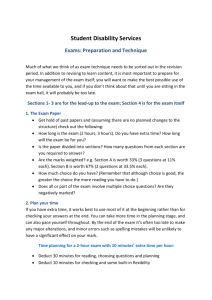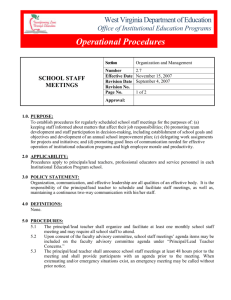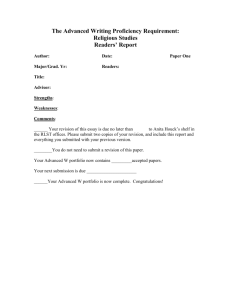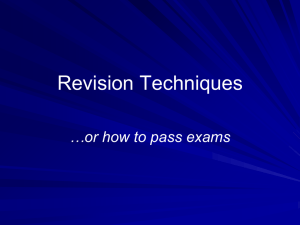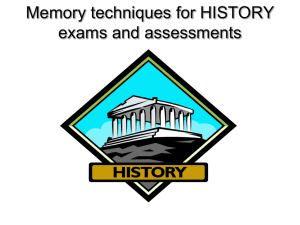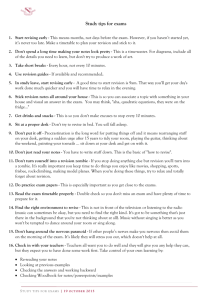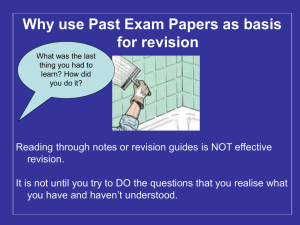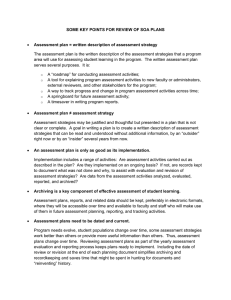Top Revision Tips (5/2/2015)
advertisement
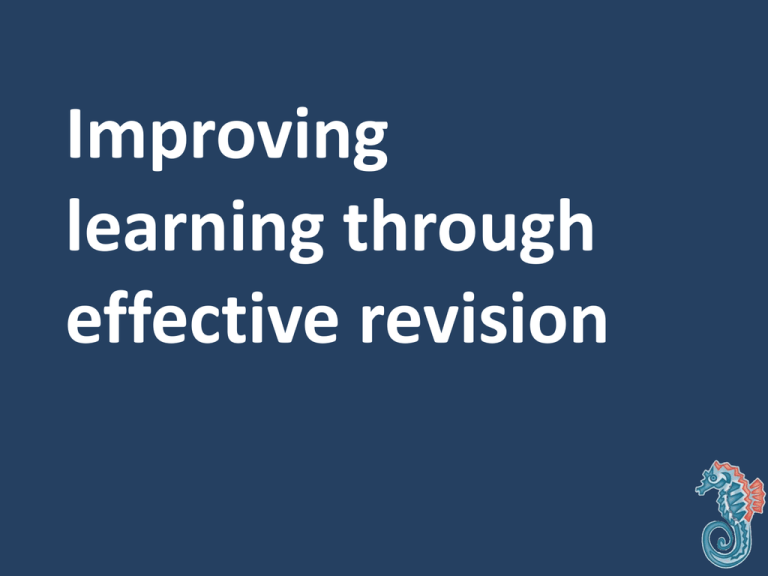
Improving learning through effective revision https://www.wku.edu/senate/documents/improving_student_learning_dunlosky_2 013.pdf Not very effective Highlighting Re-reading Summarising Texts Why? • Low challenge. • Little thinking required. • Makes the student think that they are ‘doing something’ More effective Practice Testing This technique is pretty straightforward – keep testing yourself (or each other) on what you have got to learn. This technique has been shown to have the highest impact in terms of supporting student learning. Some ways in which you can do this easily: • Create some flashcards, with questions on one side and answers on the other – and keep testing yourself. • Work through past exam papers – many can be acquired through exam board websites. • Simply quiz each other (or yourself) on key bits of information. • Create ‘fill the gap’ exercises for you and a friend to complete. • Create multiple choice quizzes for friends to complete. Distributed Practice Rather than cramming all of your revision for each subject into one block, it’s better to space it out – from now, through to the exams. Why is this better? Bizarrely, because it gives you some forgetting time. This means that when you come back to it a few weeks later, you will have to think harder, which actually helps you to remember it. Furthermore, the more frequently you come back to a topic, the better you remember it Elaborate Interrogation One of the best things that you can do (either to yourself or with a friend) to support your revision is to ask why an idea or concept is true – and then answer that why question. For example; • In science, increasing the temperature can increase the rate of a chemical reaction….why? • In geography, the leisure industry in British seaside towns like Porthcawl in South Wales has deteriorated in the last 4 decades….why? • In history, the 1929 American stock exchange collapsed. This supported Hitler’s rise to power….why? So, rather than just try to learn facts or ideas, ask yourself why they are true. Self explanation Rather than looking at different topics from a subject in isolation, try to think about how this new information is related to what you know already. This is where mind- maps might come in useful – but the process of producing the mind map, is probably more useful than the finished product. So, think about a key central idea (the middle of the mind map) and then how new material, builds on the existing knowledge in the middle. Alongside this, when you solve a problem e.g. in maths, explain to someone the steps you took to solve the problem. This can be applied to a whole range of subjects. Interleaved Practice When you are revising a subject, the temptation is to do it in ‘blocks’ of topics. Like below: The problem with this is, is that it doesn’t support the importance of repetition – which is so important to learning. So rather than revising in ‘topic blocks’ it’s better to chunk these topics up in your revision programme and interleave them: This means that you keep coming back to the topics. So, instead of doing a one hour block of revision on topic 1, do 15 minutes on topic 1, then 15 minutes on topic 2, then the same for topic 3 and 4. Summary • • • • • • “Memory is the residue of thought”. Testing. Space it out. Keep asking ‘why’? Build on what they know. Explain their steps in problem solving.

